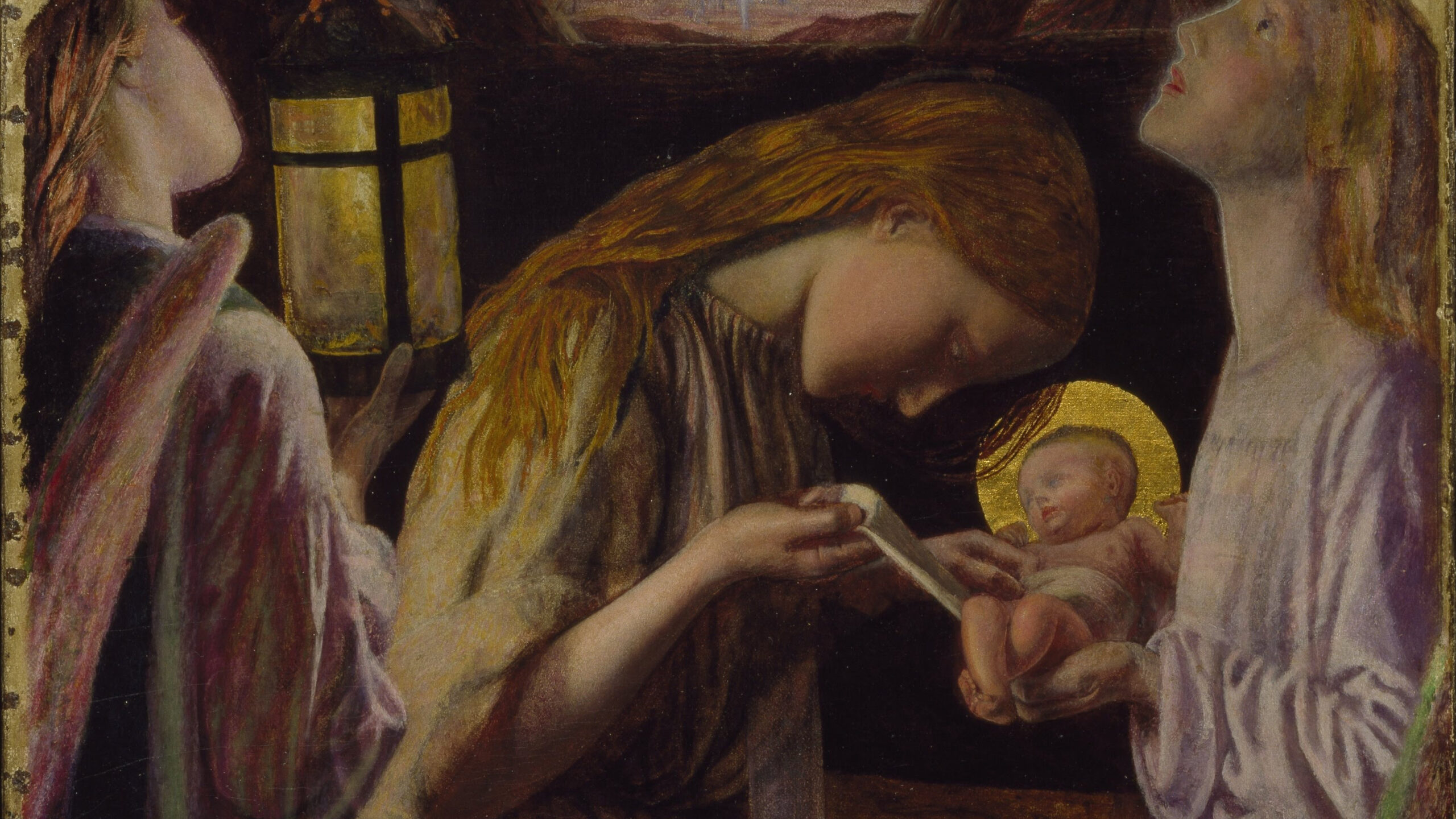There is just something about a baby. If a baby is introduced into a crowded room, everyone will want to see him. Conversations will stop, smiles will spread across people’s faces, arms will reach out to hold the child. Even the crustiest and most curmudgeonly denizen of the room will be drawn toward the baby. People who, moments before, had been arguing with one another will be cooing and making funny faces at the infant. Babies bring peace and joy; it’s just what they do.
The central and still unnervingly strange message of Christmas is that God became a baby. The omnipotent Creator of the universe, the ground of the intelligibility of the world, the source of finite existence, the reason there is something rather than nothing—became an infant too weak even to raise his head, a vulnerable baby lying helpless in a manger where the animals eat. I am sure that everyone around the Christ child’s crib—his mother, St. Joseph, the shepherds, the Magi—did what people always do around babies: they smiled and cooed and made funny noises. And they were drawn more closely together precisely by their shared concern for the child.
In this we see a stroke of divine genius. For the entire length of the history of Israel, God was endeavoring to attract his chosen people to himself and to draw them into deeper communion with one another. The whole purpose of the Torah, the Ten Commandments, the dietary laws outlined in the book of Leviticus, the preaching of the prophets, the covenants with Noah, Moses, and David, and the sacrifices offered in the temple was simply to foster friendship with God and greater love among his people. A sad but consistent theme of the Old Testament is that, despite all of these efforts and institutions, Israel remained alienated from God: Torah ignored, covenants broken, commandments disobeyed, temple corrupted.
Babies bring peace and joy; it’s just what they do.
So, in the fullness of time, God determined, not to intimidate us or order us from on high, but rather to become a baby, for who can resist a baby? At Christmas, the human race no longer looked up to see the face of God, but rather down into the face of a little child. One of my spiritual heroes, St. Thérèse of Lisieux, was known as “Thérèse of the Child Jesus.” It is easy enough to sentimentalize this designation, but we should resist that temptation. In identifying herself with the infant Christ, Thérèse was subtly endeavoring to draw everyone she met out of themselves and into an attitude of love.
Once we understand this essential dynamic of Christmas, the spiritual life opens in a fresh way. Where do we find the God we seek? We do so most clearly in the faces of the vulnerable, the poor, the helpless, the childlike. It is relatively easy to resist the demands of the wealthy, successful, and self-sufficient. In point of fact, we are likely to feel resentment toward them. But the lowly, the needy, the weak—how can we turn away from them? They draw us—as a baby does—out of our self-preoccupation and into the space of real love. This is undoubtedly why so many of the saints—Francis of Assisi, Elizabeth of Hungary, John Chrysostom, Mother Teresa of Kolkata, to name just a few—were drawn to the service of the poor.
I’m sure that most of those who read these words will gather with your families for a Christmas celebration. Everyone will be there: Mom and Dad, cousins, uncles and aunts, perhaps grandparents and great-grandparents, some friends who find themselves away from home. There will be lots of food, lots of laughter, plenty of lively conversations, most likely a fierce political argument or two. The extroverts will be having a splendid time; the introverts will find all of it a little more challenging. I would be willing to bet that at most of these gatherings, at some point, a baby will be brought into the room: the new son, grandson, great-grandson, cousin, nephew, what have you. Could I urge you this year to be particularly attentive to what that baby does to everyone, to notice the magnetic power he has over the entire motley crew? And then I would invite you to remember that the reason you are gathering at all is to celebrate the baby who is God. And finally, permit yourself to be attracted by the peculiar magnetism of that divine child.
A version of this article was published in the Wall Street Journal, December 24, 2022 edition.
